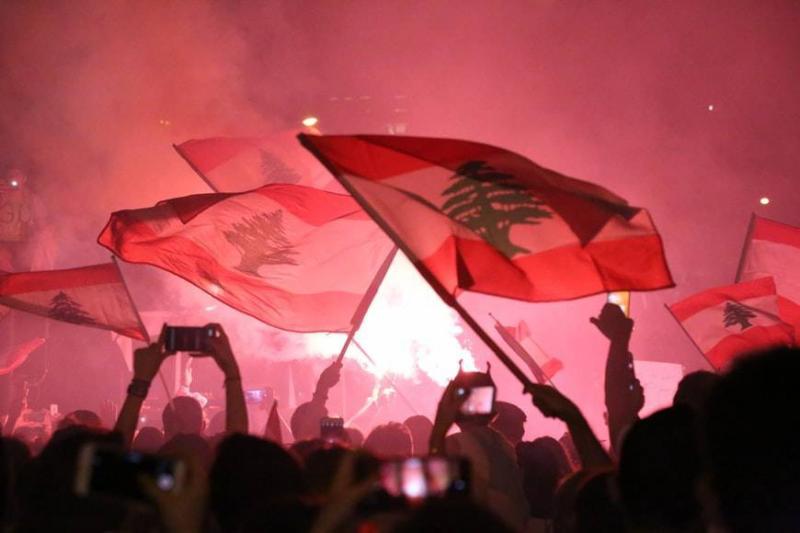The "Free Patriotic Movement" in Lebanon hinted at the possibility of ending its political alliance with the militia "Hezbollah," which analysts considered the beginning of a shift in alliances in the country ahead of the elections scheduled for March. For the first time, the leader of the "Free Patriotic Movement," Gibran Bassil (son-in-law of President Michel Aoun), openly criticized the Shiite duo (Hezbollah and Amal Movement), after previously limiting the crises to the "Amal Movement" led by Nabih Berri, while somewhat sidelining Hezbollah.
A leaked video clip of Bassil circulated in which he intensified his attacks on the armed group, stating: "Whoever is not with us and our cause of right will never be." The leader of the Free Patriotic Movement added, commenting on measures taken against his party: "There will be political repercussions," referring to reports regarding Hezbollah's choices between allying with it or with the Amal Movement, especially after the recent battle over election law.
Last Tuesday, the Lebanese Constitutional Council rejected the Free Patriotic Movement's challenge to parliamentary amendments to the election law, meaning that the elections will take place as scheduled on March 29, while the movement had been demanding a postponement to May.
Will the Mar Mikhael Agreement collapse?
In a comment on the current crisis, Khalil Sherbel, affiliated with the Free Patriotic Movement, wrote on Twitter: "Mikhael - is dead," referencing the Mar Mikhael Agreement that united the movement with Hezbollah 15 years ago, which helped Aoun, the founder of the Free Patriotic Movement, to come to power in 2016.
On February 6, 2006, Hezbollah leader Hassan Nasrallah and the then-leader of the Free Patriotic Movement, the current President Michel Aoun, signed an understanding at the Mar Mikhael Church in Beirut to work together on addressing important issues, most notably "building the state." The understanding document consists of ten points, with key issues including "electoral law," "Lebanese-Syrian relations," "protecting Lebanon," and another titled "building the state," which stresses fairness, parity, merit, integrity, an independent judiciary, and rooting out corruption.
Disagreements are not new; last February, the political council of the Free Patriotic Movement stated, on the anniversary of the agreement, that their understanding with "Hezbollah" had "failed to achieve the project of state-building and the rule of law," considering the anniversary a time for reflection on this understanding. Last June, Bassil stated that "the presence of armed groups other than the Lebanese army is not normal, and this exceptional situation should not continue," following leaked information about disagreements between him and representatives of the Shiite duo regarding the government formation crisis at that time.
Losing the last ally
While Hezbollah did not officially comment on Bassil's statements, Saadek Al-Naboulsi, a supporter of the organization, stated that "Hezbollah preferred silence and absorbed all criticisms without directing any public critique towards the Free Patriotic Movement, but Bassil risks losing support." He added, "The Free Patriotic Movement no longer has any allies in the upcoming elections... there is no real ally except Hezbollah, so why are you abandoning your last ally?"
Lebanon is facing a new political crisis after the formation of a government, as Hezbollah obstructs Cabinet meetings due to its insistence on having the government decide to change the investigative judge in the Beirut port explosion case, Tarek Bitar, which is rejected by President Michel Aoun and Prime Minister Najib Mikati, based on the principle that political authority does not interfere with judicial authority.
Two prominent reasons
Lebanese writer and political analyst Fadi Akoum stated that rising disagreements between Hezbollah and the Free Patriotic Movement stem from several reasons; most notably, the presidential elections. Bassil has his eye on the position, while Hezbollah wants the leader of the Marada Movement, Suleiman Franjieh, as there seems to be a semi-agreement on this since Aoun took office.
Akoum added in statements to "Sky News Arabia" that the second reason is the election date, as Hezbollah supports the decisions of the Speaker of Parliament and Amal Movement leader Nabih Berri at the expense of the Free Patriotic Movement, deepening the identity of the dispute between the two sides.
The Lebanese analyst anticipated that Bassil would step back and accept all the conditions set by Hezbollah during the election period because the Free Patriotic Movement needs votes from the Shiite community, stating, "It is not in Bassil's interest to sing outside the choir at this time; otherwise, he will be the biggest loser among political movements."
He clarified that the major dispute currently lies between the Free Patriotic Movement and the Amal Movement, "where there are below-the-belt political blows between the two sides, and were it not for Hezbollah and its strong relationship with the movement, matters would have escalated further." He indicated that there would be a freeze on disagreements due to shared interests among the three, including Franjieh himself and the Syrian Social Nationalist Party, but after the legislative and presidential elections, he believes that the conflict between Hezbollah and Bassil, and between the latter and Berri, would reach a point of rupture, resulting in a change of alliances after the elections but not before.




